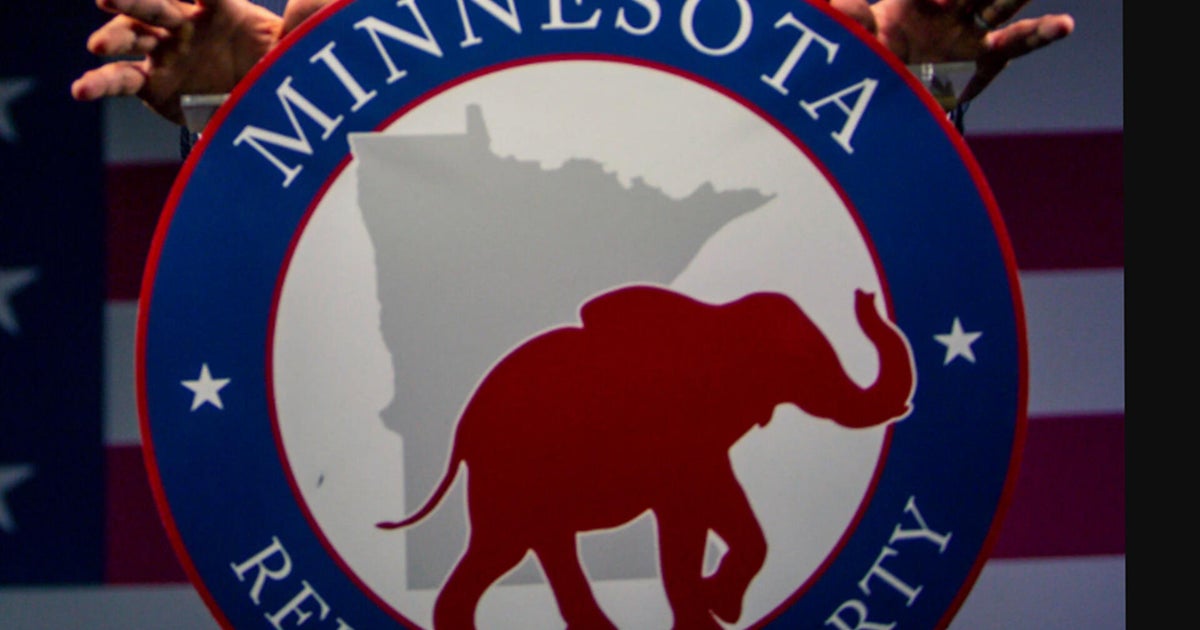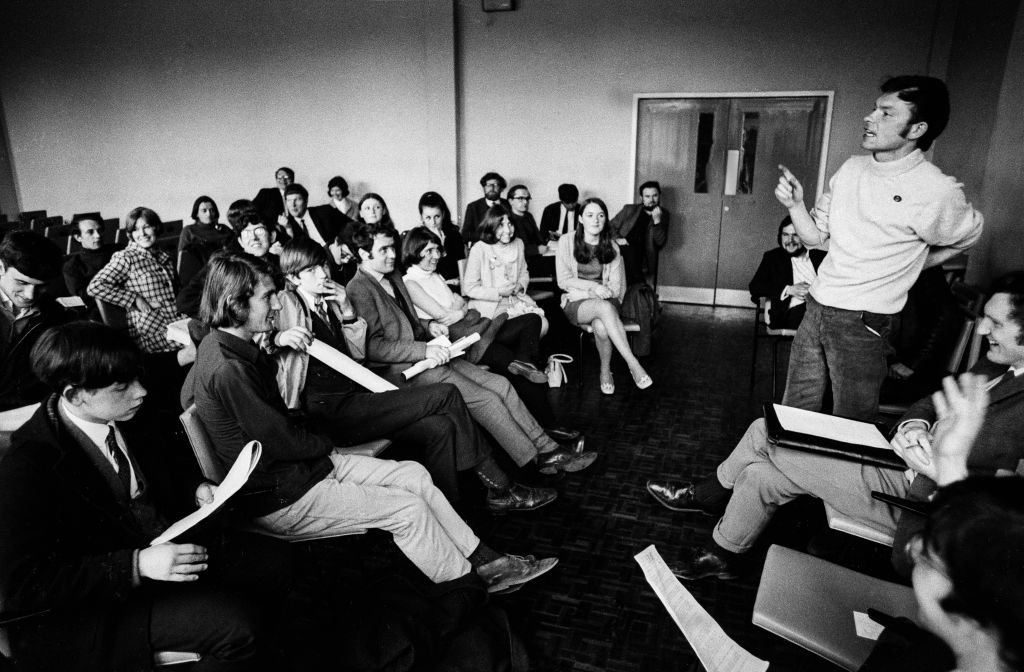As Madeleine Albright is laid to rest, a former student recalls her kindness in time of crisis
Madeleine Albright, the first woman to serve as U.S. Secretary of State, died last month of cancer at the age of 84 and is being honored today in a funeral service at Washington National Cathedral, with President Biden delivering the eulogy. In this personal essay, attorney and Iraq war veteran Hal Brewster reflects on the impact Albright had as a leader, teacher, mentor and friend.
When I learned of Secretary Albright's death, I was driving on a remote stretch of highway in Kansas. My husband called to break the news gently. I sat in silence for nearly 10 minutes. And then I began to sob.
Madeleine Albright, the world-famous diplomat with an equally famously wit, played an outsized role in my younger life. She was my professor, then my mentor, then my pen pal during my deployment to Iraq, and always, my friend.
After Secretary Albright left her storied career in government service, she returned to her home in academia and became a professor at Georgetown University's Walsh School of Foreign Service. In spring 2006, my final semester of college, I won the lottery for a seat in her seminar, American National Security Toolbox.
The class was capped at about 30 students, which made for an intimate atmosphere. Every class was part meticulous lecture, part class conversation. She engaged — always honestly, and often emotionally — about the hardest decisions she faced while at the helm of the U.S. State Department.
I was a cadet preparing to commission as an active-duty officer. I was anxious about deploying to fight the war in Iraq. It seemed an impossible mission, even for a military as powerful as ours. This was not the war I had signed up for when — during September of my senior year of high school — the planes destroyed the World Trade Center and hit the Pentagon. I had applied for ROTC scholarships then out of a patriotic pull to give of myself to my nation. It was a pull I know Dr. Albright shared. I felt a little hoodwinked by President Bush and Defense Secretary Donald Rumsfeld, but my hands were tied at that point: deploy or pay back an exorbitant sum to refund my scholarship. I had no choice.
After class discussions in which I vocalized my hesitations, Dr. Albright twice took me aside to talk. In those quiet, personal moments, I was shocked that an individual who had shaped the world throughout the 1990s reacted to me only as a concerned parent would. Once, she placed her hand on my shoulder to comfort me when I got choked up. There was incredible warmth in her heart.
The centerpiece of Dr. Albright's class was a two-day simulation in which students were assigned roles in the Cabinet or foreign ministries and had to solve one of the world's most intractable problems in a weekend. During my semester, we had 48 hours to convince Iran to abandon its nuclear ambitions.
Dr. Albright assigned me to serve as National Security Advisor. The position came with the honor of being the sole briefer to "President Albright" at the very end of the exercise. I was to lay out the group's proposed course of action. I was nervous. She was magnanimous. My memory of the briefing is a complete blur of happiness, nostalgia and pride. I will never forget those precious moments, even if I can't recall a word of what I said.
After graduation, I trained for 24 months and then was deployed to Baghdad Province with my brigade from Kansas's famed First Infantry Division.
My year in Iraq is without question the most formative of my life. But perhaps the most surprising aspect of that year was the role Dr. Albright played for me.
We became pen pals. She wrote frequently to wish me well, letting me know she was thinking of me and praying for my safety. "Dear Hal," she wrote in her first letter in February 2009. It was the week I took command of my platoon of 40 specialized scouts and snipers. I had — and have to this day — never felt the enormity of my responsibility more than that moment. "Stay in touch so that I know you are ok," she wrote. I cried, alone in the windowless shack that served as my bedroom at Forward Operating Base Mahmudiyah.
Between missions, I would scrawl out a few sentences, always telling her I was fine, even when I wasn't. It was the same as I had grown accustomed to do in my correspondence with my family. And my partner at the time.
Our letters slowly came to a stop after I returned safely stateside and was eventually discharged from active duty. That first letter, with her characteristically superb penmanship, still adorns my bookshelf to this day. It's become a precious memento of a certain chapter of my life.
Madeleine Albright made history, and there are far more accomplished people — the world's most elite elder statesmen and women — who will eulogize her tremendous accomplishments to foreign policy and America's leadership in the world. But I hope the world will also remember Madeleine Albright, the mentor. The educator. The friend.
I was once lucky enough to call Madeleine Albright my friend. Her letters brought light to some of my darkest and most challenging days. To her family, I hope her memory may forever be a blessing. The memory of her kindness will be with me for the rest of my life.
Thank you, Dr. Albright.
Your friend,
Hal




